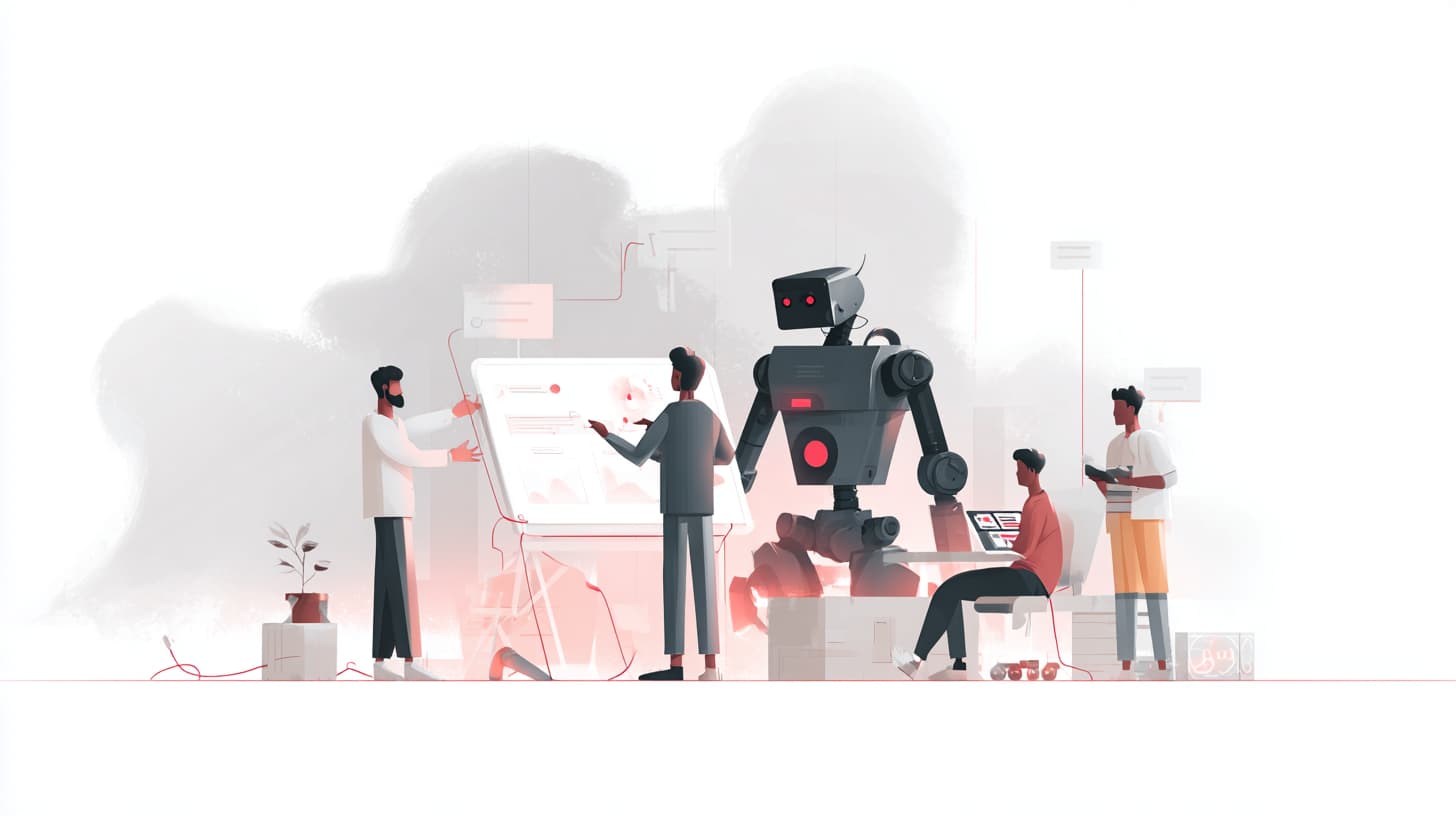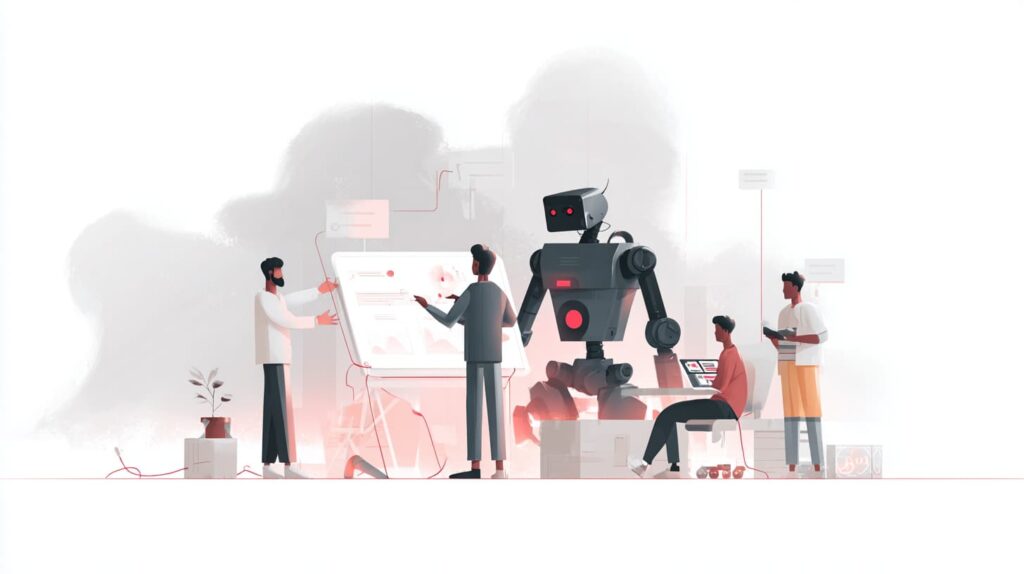By EloInsights
- In the month in which we reinforce the importance of women’s rights, we spoke to Lays Lobato, managing partner of EloGroup.
- For her, ESG actions are fundamental to promoting diversity and changing the structure of organizations to keep up with the complexity of today’s world.
- She also talked about career challenges: from combating harassment to empowering women to transform realities.
The year is 2022, but we need to reaffirm the debate on women’s representation in spaces of power. According to a projection by the World Economic Forum, equal participation between men and women in the economy, politics and education in the world will only be achieved in 135 years. In the corporate world, only 38% of leadership positions are held by women, according to a Grant Thornton survey of 250 companies. Brazil lags countries like South Africa, Turkey and Malaysia. There is still a long way to go.
“We need to discuss the culture of parenting, for example, to induce gender equality, as well as new social constructions and references for boys and girls. I am very uncomfortable with the view of obligatory caregiver that we receive because we are women; it puts us in a limited position to act,” says Lays Lobato, managing partner of EloGroup.
According to data from the Brazilian Institute of Geography and Statistics (IBGE), the unpaid services of the so-called “care economy”, which include tasks such as raising children and household chores – and which are overwhelmingly the responsibility of women – are equivalent to 11% of Brazil’s GDP. With the pandemic, this issue has become even more latent, and goes far beyond being just another challenge for building a recognized professional career.
In this sense, ESG is already an imperative for organizations and a lever for sustaining long-term value. It is also fundamental to mitigating inequalities and helping to build conduct that is more coherent with the complexity of today’s world. In the month in which we remember various women’s struggles, we spoke to Lays Lobato about her career and evolution as a leader within the context of valuing practices linked to the environment, social issues and governance. Check it out:
Can you tell us how your involvement with ESG issues began? What aspects of this subject attracted you the most and still do?
The figure of the professional does not exist separately from the figure of the daughter, the mother, the friend, and so on. On the other hand, we are not just the sum of our internal personas. We are also interconnected with the people we love. And this shapes the way we see the world. In my family context, my parents come from a humble background. My mother was one of the first generation to have access to formal education and the only one of nine siblings to attend university. It is clear that this contributed decisively to my attention and my view of the social agenda.
I went to Sebrae [a school that combines secondary education with a technical course], so I had the opportunity to start working early, at the age of 15. This gave me enriching experiences from a very young age.
I started out in a referral hospital in Belo Horizonte [Minas Gerais] and there I had my first female leadership outside the home – my grandmother and mother have always been great references in my life. Among the many things I learned, and today I have the maturity to name them, is that it is possible, and even more necessary, to be humane and fair in the corporate world. This helps our sleep to be lighter, our lives to have purpose and our actions to have impact and longevity.
Although I loved my experience at the hospital, I was very young and was invited to do an internship at the Minas Gerais Development Bank. There, I had my first contact with the public world, in financing for micro and small businesses. It was there that I understood the importance of the state in promoting public policies to reduce inequalities and I also saw that the public sphere was far behind in terms of management and technology, and that the social challenges were even greater than I had assumed.
I then started studying Business Administration at the Federal University of Minas Gerais (UFMG). After these market experiences, I decided to start a undergraduation research and joined a finance laboratory. I wanted to take advantage of everything that a federal university could offer me. I had great teachers and mentors, who referred me to various subjects in other areas, such as Human Sciences, Philosophy and Economics. This all helped to broaden my networks and world view.
When I went on exchange to Canada, I understood how a country with effective public policy works, I saw how engaged the population was with environmental issues and a different way of thinking. I got to know the circular economy and activists for causes that I hadn’t realized how important they were.
When I returned, an opportunity arose at EloGroup, with the first project in Belo Horizonte. In an allocation vacuum, I returned to public administration on a project for the National Council of Justice (CNJ), funded by the World Bank. I learned a lot, demystified many things and met many inspiring people. I also got to know Brazil, traveling to 10 states on business, visiting municipalities that I had no idea existed on the map. This allowed me to get to know different realities and reinforced in me the need to be involved with impact projects.
And how have these experiences shaped your path within the ESG theme and your evolution as a manager?
The experiences I have had, especially over the last seven years, of greater interaction with public management, the sustainability area and the third sector, have made me aware of the size of the environmental, social, economic and management problems we have, and the need to reinvent existing cooperation models, because it is only possible to deliver real transformation – on a scale, at speed and generating maximum impact – with capacity building, cross-sector collaboration and public-private partnerships between companies, governments, civil society organizations and academia.
In this context, EloGroup’s strategic planning also came into play, in which we defined ESG as a priority. Unlike innovation, a practice we have been developing since we were founded 15 years ago, ESG is a new practice and there is a world inside every little letter! We started the practice and designed everything practically from scratch, from the approach and framework to the offers and knowledge trails.
With a sensational team, we led several projects: assessment for the creation of a carbon accounting platform, connected to the decarbonization journey of a beverage giant; launch and implementation of the digital platform to support early childhood care and development, which serves more than 100,000 families in Alagoas.
We structured the Brumadinho [Minas Gerais] Alliance and observatory, focused on the recovery and development of the territory in the context of the dam collapse. And, with the AGP Health program, we impacted more than 100 municipalities and saved around R$120 million for the public coffers. All these initiatives have had a huge impact, and this gives us confidence that we are on the right track.
Talking about the social aspect of ESG – more specifically the issue of gender diversity: what are the main pains experienced by women within companies?
There is common sense, which everyone can clearly see. There are also very deep things, such as attitudes motivated by unconscious biases, which even today many of our organizations are not prepared to deal with. Of the things that everyone can see, we can talk about jokes, harassment, stereotyped pre-judgment.
And there are the more subtle practices, such as the bias of hiring, challenging and recognizing more men than women in their careers. We believe in the fallacy that the fact that we have more men than women in leadership positions is purely a matter of meritocracy and if we question ourselves a little more, it’s not quite like that.
And why do these situations happen? Often because the woman does not have the opportunity or the confidence of a white, cisgender, heterosexual man. And I do not want to point fingers at anyone, we are all the fruit of historical and cultural constructions, but we, as women, systematically underestimate our capacities and abilities.
Sheryl Sandberg, in her book Make It Happen, points out that 57% of men, when hired, negotiate their starting salary, while only 7% of women feel comfortable discussing points like this. We have to be aware that the woman who is in the job market today was not brought up in a feminist home.
This woman was challenged to look after a doll from a young age; she was questioned about her clothes, the way she sat, the way she spoke, and her self-esteem was compromised in many situations. And this reverberates in her way of seeing and experiencing the world.
It is something that happens in job interviews, the insecurity when speaking, positioning oneself, how to dress to gain the respect of the interlocutor, who is most often a man. The final interview for a job is for leadership positions, and who occupies these positions today? They are men, and this can be oppressive for many women. At the job interview, you ask yourself if there are any women in the leadership of a company and what you’re doing there. Is there room for you?
And there are legal issues, such as the discrepancy between maternity and paternity leave, with a difference of 6 months to 15 days, which creates a cyclical problem, a very important relative disadvantage. We should move towards parental leave, which equalizes the availability of both parents so that they can help each other adapt to the new joint task.
In the daily demands of the child, when something happens at the nursery, only the mother is called; she does not earn the same as her husband (for structural reasons) and takes the lead in staying at home to look after the child; she puts herself at risk of being fired – or ends up asking to leave to come back when the child is older. When she returns to the job market, she may become outdated and lose a lot of competitiveness. It is like creating layers and layers of complexity on this journey and then it becomes increasingly difficult to change course.
And how can organizations take practical action to address these pains?
There are many ways. From hiring processes focused on women, the creation of affinity groups, awareness programs and even parental leave. We must think about entry, but, above all, about the development and retention of these people throughout their professional career. This involves getting to know and unlearning social constructs that we have accumulated throughout our lives, because in a situation of power, this can be decisive in accelerating or limiting the growth of others who are part of a minority of rights.
There is also the discussion that unpaid domestic work should be included in the calculation of GDP, because the failure to measure this data can be a major gap. I am also in favor of quotas – whether racial, social or gender. The imbalance we have today will not be corrected in the short or medium term without these mechanisms. In addition, quotas can generate empathy, a behavioral factor that promotes social transformation.
When we look at the role of leadership, what are the main challenges for a leader in the corporate sector today? What are the greatest opportunities?
We cannot romanticize the role of the female leader. Many women still replicate the sexism they learned when they were elevated to positions of power, certainly because they did not have a “liberating” education (as in Paulo Freire’s phrase). We feed and replicate the myth that, to be in that space of power, we must masculinize ourselves, prune ourselves, dress and behave in a certain way, follow the rules of the game, otherwise our existence will be threatened.
And I understand all these insecurities and questions, because it is not easy to live in a predominantly sexist world. These women are reproducing behavior that they have been taught throughout their lives, and possibly have not had the space for reflection and awareness.
But there is another, healthier way, in which people, especially women, learn from their processes and support each other. We must recognize that we are privileged just to be here making progress like this, thanks to the many women who have fought for this cause. We have grown up in a world where our basic civil rights are guaranteed.
And this is not a given. It is an achievement. I see that our role as leaders is to recognize and signify our trajectory. The responsibility we have is the size of our privileges. We need to pave the way for other women and minorities to be in spaces of power and defend what they are and believe in so that, together, we can evolve as a society. In the case of black men and women, for example: less than 135 years ago slavery existed in our country.
My dream is to live in a world in which people have choices and those choices are conscious. Consciousness requires self-knowledge and empathy, and not everyone is ready and willing to deconstruct their truths and give up their space of power. It is more comfortable to reproduce the system, to live in automatic mode, which obviously benefits them.
We have come a long way, but the journey is still long. There is little awareness of the world that surrounds us and in which we are inserted, and this also comes from a cis, straight, white masculinity that is not questioned about its place of privilege, that does not seek knowledge beyond its bubble.
Women do much more of this, because we are evaluated all the time. All this demand has brought us this far, but you must modulate this when you start to be a formal reference, after all, we are to others what we are to ourselves. Your voice as a leader has to be broader and more plural, it must be more human.
The International Women's Day – March 8 – was established in a context of struggles for women's emancipation. With the market increasingly turning to ESG, how do practices linked to this issue contribute to and support the conquest of more spaces and rights for women?
Objectively and measurably, gender equality has been a formal commitment of many large companies around the world. And this is a great opportunity. All the women who are ready will join this movement and prove their ability and competence. The movement is initially regulatory, bureaucratic, but over time we will understand that, rather than an artificial imposition, this stance is a necessity for business survival.
I believe that the ESG is leveraging changes that have been identified and needed for a long time. I always say that it is not a question of if, but a question of when. And the when has been accelerated by the ESG, which in turn has been accelerated by the pandemic and by movements in the financial market. Undoubtedly, more women in positions of power will help catalyze change.
In general, in what aspects do ESG issues still need to advance?
The social agenda is extremely important, especially in Brazil, which is one of the most unequal countries on the planet. Governance is a little more mature. And, even as a matter of the scale of seriousness of the consequences in the event of negligence, we need to make even more progress on the environmental agenda.
If you look at the data – there is a very interesting book by Steven Pinker, The New Enlightenment, in which he says: in the last 50 years, we have doubled the world’s population, while at the same time increasing people’s longevity, largely thanks to technology. The economy has grown eightfold, but we also consume four times more natural resources.
Our poor relationship with nature is largely due to our distance from it, since 70% of the population lives in large cities. And this distance has led to insensitivity. The rise in the planet’s temperature is helping us to see more and more events that used to be considered extreme. And an environmental problem causes a social problem.
In short, we cannot choose just one letter of the acronym. Everything is interconnected, necessary and urgent and blends together as cause and consequence. As in the case of basic sanitation or the exploitation of sensitive natural resources by economically vulnerable communities. You cannot zero in on any one letter. But on a scale of 0 to 10, the “E” is 1, and is a condition of existence for the other issues.
Speaking of trends, several companies are already linking their bond issues to ESG targets, especially green bonds, which are related to the environment. There is also more and more news about debts linked to the S and G of the acronym. For example, the goal of increasing the number of women in leadership positions. Will issuing these bonds continue to be a strong trend? Is it an efficient way of establishing ESG practices?
It is a strong trend and I think it makes a lot of sense, because it creates or diversifies the matrix of incentives for players to move in the right direction. It is a necessary movement for us to be able to accelerate the changes for the coming decades.
And the movement to bring more women, blacks, gays, trans people and other minorities into leadership positions adds perspectives on solutions to major challenges. These are other lenses available to organizations. We need this multiplicity of skills and visions for an increasingly multifaceted and complex world. All this enables real and scalable change.
The new world needs articulation, the fostering of partnerships and the formation of collaborative networks. More than ever, it’s about turning the work of little ants into a collective movement that leads to a significant impact. The hand will not move decisively if it is not a movement of everyone for everyone. ESG is an imperative for organizations and for the world, because there will be no world, no future generations without this tripod.











